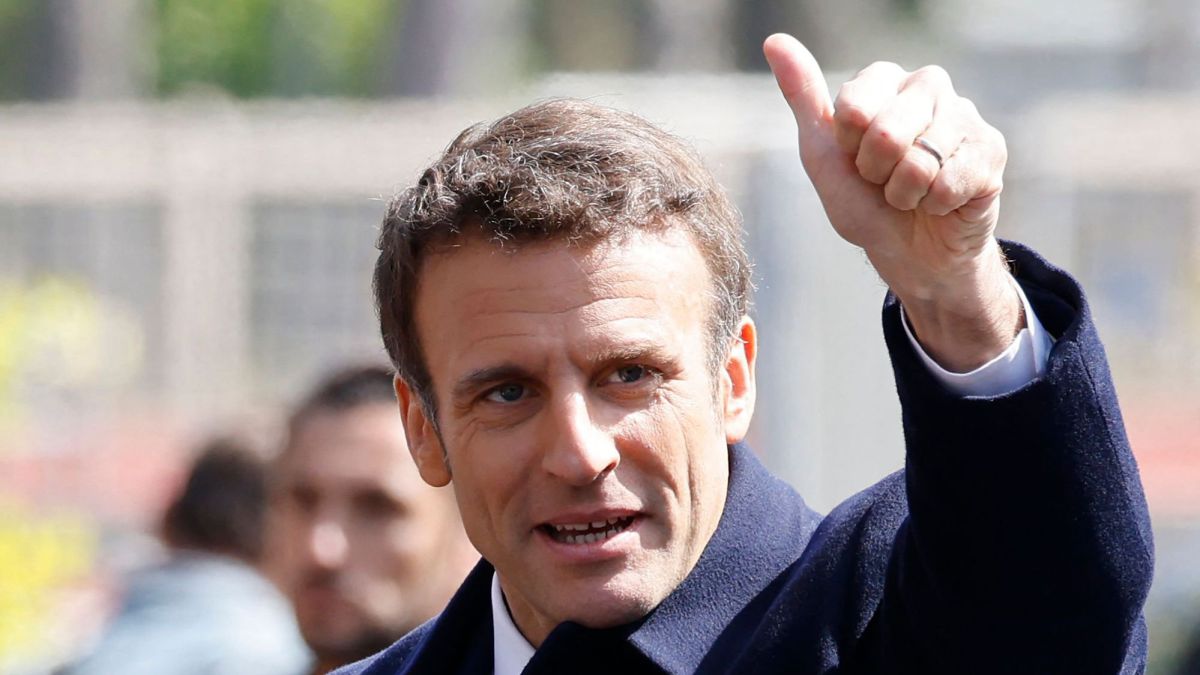This Sunday is the first round of the French presidential election. Emmanuele Macron defends her presidency in 2022 in a very close election with Marine Le Pen and her far-right party, Agrupación Nacional, which has gained strength in recent months. Although the main parties have a fairly marked ideology, there are still doubts about ‘La République En Marche!, a formation led by Macron.
Macron has always defined himself as a politician “neither left nor right” and has managed to displace the main center-left and center-right parties. As Dorian Dreuil, a political scientist associated with the Jean Jaurès Foundation, explains to Ara, “it is difficult” to place Macron’s ideology because “He does everything so that he is not defined by either the right or the left.”
In any case, these five years of Macron in the Elysee are leaning to the right. The current French president”has progressively occupied the space left by the traditional right; it has maintained a very pro-business economic agenda and has progressively abandoned its relatively liberal positions on cultural issues such as immigration,” Emiliano Grossman, a political scientist and researcher at the SciencePo Center for European Studies in Paris, told the aforementioned media outlet.
Macron is a president with deep pro-European overtones. He has shown them in his continuous meetings with Vladimir Putin to avoid the war in Ukraine (a failure that could harm him at the polls) and as the visible head of the European Union, always together with Germany. Although the Frenchman won the 2017 presidential elections after being presented as a cosmopolitan and progressive candidate, his electorate has been shifting toward conservative voters.
Mathieu de Taillac, correspondent in Spain for the French newspaper Le Figarodefine for Huffington Post the different faces of Macron: “He is a politician liberal which, depending on the sector, is left-wing or right-wing. In economics, they are policies that are very similar to those that the right can propose classic French, on issues of citizen security as well, on citizen security as well, on issues of integration, of Islam, secularism has been moving closer to conservative positions, and then on more social issues such as feminism or equality, women and men, ecology , at least he wants to present himself as a progressive liberal”.
The world has changed in five years and the France of 2017 is not the France of 2022. It will be an election like no other after the blow of the pandemic, the war in Ukraine and other internal French crises such as that of the yellow vests. If the polls are correct, the French will choose their next president in the second round: Marine Le Pen or Emmanuel Macron.
What was Macron’s profession before he became president?
Macron is and was a chameleon. The current French president obtained the title of Philosophy from the University of Paris-Nanterre, then graduated in Political Sciences at the Institute of Political Studies in Paris in 2001. Later he entered the National School of Administration (ENA), in 2007 he was a rapporteur for the Attali Commission and a year later he joined the Rothschild Bank.
In 2012 he was appointed Deputy Secretary General of the Presidency of François Hollande. Two years later, in 2014, he made the big leap by being appointed Minister of Economy, Productive Recovery and Digital Affairs.

